The Yorkshireman who set out on a bike ride and didn't return until three years later
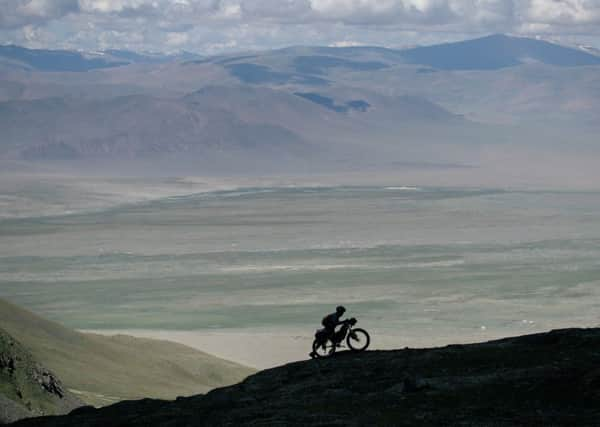

The first thing most people ask when Ben Page happens to mention he has just recently returned from a three-year bike ride, which took him from the tip of South America via the Canadian Arctic to his front door in Heptonstall, is “Why?”. When he first saddled up in 2014, having just graduated from university, he would have told you it was cheaper than backpacking around the world and besides it was a way of seeing places not on the usual tourist trail.
Now back in England and having had time to reflect a little on the epic ride which took him to some of the most remote parts of the world, he gives a different answer.
Advertisement
Hide AdAdvertisement
Hide Ad“It made me feel small and sometimes it’s important to feel small, important to feel a sense of yourself in this great big world,” he says.
Now 24, when he left home he didn’t have a route planned or a checklist of must-see places that he had to stick to. What he did have was laptop and a camera to record his adventures and £9,000 in the bank which he had saved from his various student loans.
“That might not seem like a lot of money to most people,” says Ben. “I knew I would need some money but I reckoned that the kind of places I would be travelling to I could easily survive on £5 a day.
“I had a tent, I had a bike, so I didn’t need accommodation and I didn’t need transport. All I needed was food.”
Advertisement
Hide AdAdvertisement
Hide AdFor the most part, Ben’s diet consisted of porridge and rice flavoured with stock cubes. However, he gained more sustenance from the landscape as he made his way from Tierra del Fuego through South America and on to Asia, Africa and finally Europe.
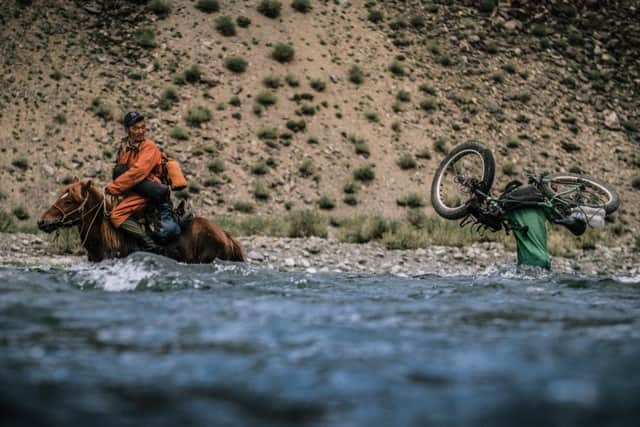

“I don’t know whether I am not good at planning or I just don’t like it, but either way I didn’t have a set route and I didn’t have a set number of miles to do each day. I didn’t want it to be about targets or number crunching, I wanted it to be about the journey. In some ways, I wanted it to lead me and it did.”
When wi-fi allowed, he would download the available maps onto his phone, but for the most part he relied on his in-built sat-nav and the help of locals he met along the way.
“I’m a geographer, that’s what I did at university, so maybe that helped. But I couldn’t have done it without a phone and without wi-fi. I might have gone to some out of the way offbeat places, but it was modern technology which got me there. Ten years ago, it’s a journey I wouldn’t have been able to do on my own.”
Advertisement
Hide AdAdvertisement
Hide AdThe highlights of his trip, which saw him clock up 40,000 miles, included the dramatic scenery of Mongolia, the Caucasus Mountains of Georgia and the vast desert plains of the Sahara.
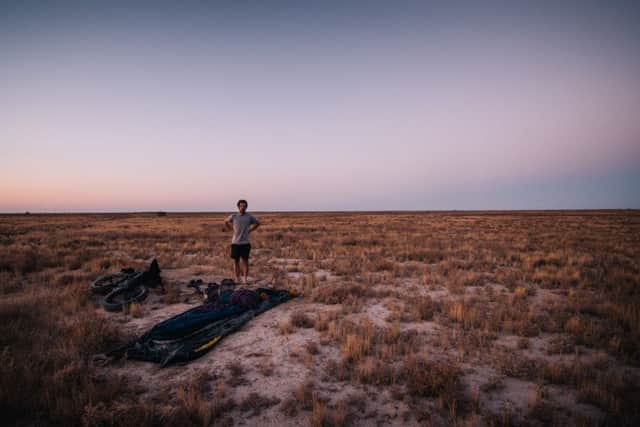

It all sounds idyllic and for the most part it was, but it wouldn’t have been a proper odyssey without a few hairy chapters. For Ben, most of those came in the month-long stretch which saw him navigate the icy tracks of the Canadian Yukon.
It’s a chapter of his journey that he has recently turned into a film, The Frozen Road, which opens with Ben adjusting to life surrounded by what he calls “the great white silence”, a quiet which was punctured only by the rumbling of the ice packs.
Stumbling across an empty log cabin, he lit a fire and, staring out onto the snowy horizon, it initially seemed quite romantic. However, when he decided to leave the Dempster Highway and the old gold rush trails, where he would occasionally be passed by a truck or a herd of caribou, for an even more remote trail, he soon found he wasn’t alone.
Advertisement
Hide AdAdvertisement
Hide Ad“A couple of the locals in a settlement called Fort McPherson had told me they had spotted a pack of wolves a few days before. It was the wildest place I had ever been, but despite the warnings I set off anyway.”
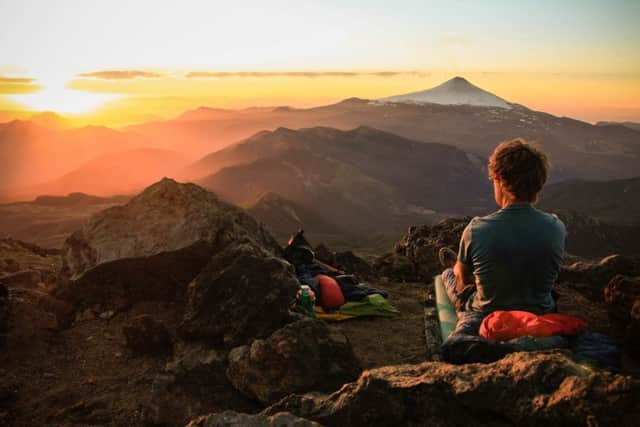

Any bravado he had soon disappeared when he was staring ahead at an empty landscape knowing he had almost 40 miles of icy wilderness to cover before hitting the next small town. When a storm, which had been forecast for a few days later, arrived early, it resulted in a scene in The Frozen Road reminiscent of The Blair Witch Project.
In his tent, his face illuminated by the light of the torch, Ben began to question why and how he had found himself miles from anywhere, battling temperatures of almost -40C and with the very real prospect that come the next morning he might have been eaten by a pack of wolves.
“It had been a long winter and I knew they would be hungry and I was a very accessible source of food. I did shed a few tears and there were times when despite the best pep talks I gave myself I found it really hard to be positive.
Advertisement
Hide AdAdvertisement
Hide Ad“I knew that if the worst happened no one would know where I was and there was every chance I might never be found. I mean, it was madness really.
“When the snow came, that was a low moment. It was too deep to cycle so I had to push my bike. Finally when I was just a mile or two from the next town I was met by a guy from the local search and rescue team. They had become concerned that I had been caught in the storm, but it was only when I saw that he was pulling a body sled that it really hit home how much danger I had been in.”
Aside from a small amount of frostbite on his face due to exposure to the Arctic temperatures, Ben escaped unscathed and with the film about to be screened at the Banff Mountain Film Festival he says that worse than the freezing Arctic temperatures or the dry heat of the dessert was the humid climate of Panama.
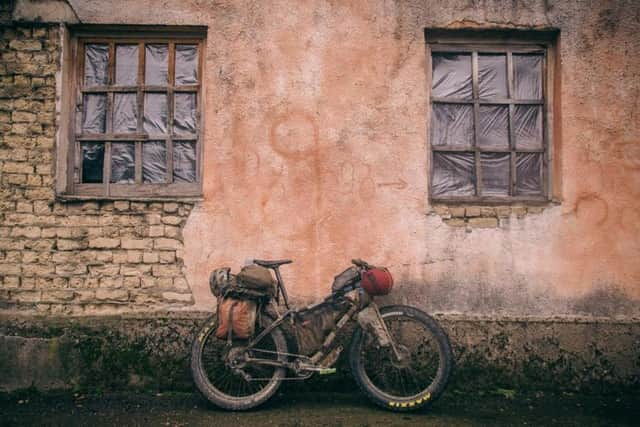

“Most places I went, I was welcomed as the crazy, white Englishman,” he says. “But they were always intrigued and that was partly because of the bike. I’d set off on one made from old mountain bike parts, which turned out not to be great for the terrain I was covering.
Advertisement
Hide AdAdvertisement
Hide Ad“Fortunately, about 10 months in, the Alaskan company Fatback Bikes heard about what I was doing and they gave me one of theirs. It had quite thick tyres, which meant a lot of people assumed it was a motorbike. Quite a few times I had people trying to take it apart looking for a motor while I stood by and explained that, no, it was my legs which were the motor.”
While some friends from back home flew out to accompany Ben on part of the Asian leg of his round the world ride, for most of the three years the only thing he had for company were the podcasts he downloaded onto his phone.
“There is a thin line between solitude and loneliness and it was one that I crossed a few times,” he admits. “Looking back, I can honestly say that there were times on that ride when it was just me that I have never felt happier. The inherent risk of being on your own brings its own rewards, but the flip side is that you don’t have anyone to share these incredible moments with and no one to share the decision making with.”
Ben, who is now on a trip to Scotland while planning another epic adventure to Russia, finally made it home last September, arriving, as he had set off, on his bike. “I had thought about what it would be like coming home from the moment I left. I’d imagined riding back down my street with family and friends outside cheering me on and, to be honest, that’s exactly how it was. I had been ready to come back and it felt good.
Advertisement
Hide AdAdvertisement
Hide Ad“I had a cup or tea and a slice of toast. Toast was the one thing I had missed, I’d missed the crunch.”
It was also confirmation of what his three years on the road had already taught him – sometimes in life, it’s the simple things that are the best.
The Frozen Road is part of the Banff Mountain Film Festival touring programme which comes to Leeds Town Hall, February 8&9; Hebden Bridge Picture House, February 8; Royal Hall, Harrogate, February 22; York Barbican, March 14. banff-uk.com